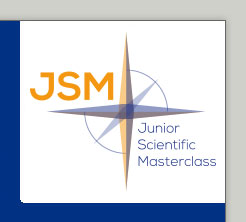Onderzoeksproject aanpassen
Projecten zijn uitsluitend aan te passen door bij het project behorende onderzoekers.
Geef via het uitrolmenu aan welke onderzoeker u bent. Nadat op u de button 'Edit project' heeft geklikt, wordt automatisch een e-mail verstuurd naar het e-mailadres van de onderzoeker die u heeft gespecificeerd.
In deze e-mail staat een link waarmee u het project kunt wijzigen.
Project properties
| Title | Thiosulphate sulfurtransferase activation has therapeutic potential on target organ injury in type II diabetes |
|---|---|
| Keywords | diabetis Thiosulphate sulfurtransferase activation target organ injury |
| Researchers |
Prof. dr. H. van Goor Prof. dr. J.L. Hillebrands |
| Nature of the research | The development of effective TST activators with high specificity is therefore needed to develop novel renoprotective and anti-diabetic drugs. These activators are currently be developed in collaboration with Dr. Matt Groves from the Pharmacy department. |
| Fields of study | pathology |
| Background / introduction |
|---|
| Thiosulfate sulfurtransferase (TST) is involved in various pathways, such as cyanide detoxification, modulation of iron–sulfur (Fe-S) clusters and regulatory cysteine residues in succinate dehydrogenase, modulation of NADH dehydrogenase, participation in sulfide (H2S) metabolism through interaction with sulfur dioxygenase and degradation of reactive oxygen species (ROS). The substrate for TST is thiosulfate, which we showed has protective effects in reducing proteinuria and renal damage in hypertensive animals. The beneficial effects of TST activation by thiosulfate probably relates to improvement of mitochondrial function and degradation of ROS and sulfide. Our data on renoprotection in hypertension are confirmed by recent findings showing that mitochondrial thiosulfate sulfurtransferase (tst) is a candidate gene for resistance against the metabolic syndrome in diabetic mice. Transgenic overexpression of tst in adipocytes protects against obesity and insulin-resistant diabetes in these animals. Tst-deficient mice on the other hand have markedly exacerbated diabetes. However, the beneficial effects of tst overexpression could only in part be mimicked by treatment with thiosulfate. We hypothesize that activation of thiosulfate sulfurtransferase protects against type II diabetes and diabetic nephropathy. The development of effective TST activators with high specificity is therefore needed to develop novel renoprotective and anti-diabetic drugs. These activators are currently be developed in collaboration with Dr. Matt Groves from the Pharmacy department. |
| Research question / problem definition |
|---|
| The goal of the present project is to evaluate the localization of TST in various human tissue using immunohistochemistry, in situ hybridization, PCR and activity assays. |
| Workplan |
|---|
|
We will also measure biomarkers of the thiosulfate pathway in human diabetic patients. The student will also be able to participate in animal experiments using thiosulfate as an novel antidiabetic drug. Since TST is an mitochondrial enzyme we will also study mitochondrial function using mitochondria from cultured cells by means of the Oroboros. We aim to mentor students who are willing to extend their “wetenschappelijk stage” to an MD/PhD project in order to further help with the development and testing of a promising antidiabetic drug. Measure TST activity in human tissues using various lab techniques. Particiapate in animal experiments. |


